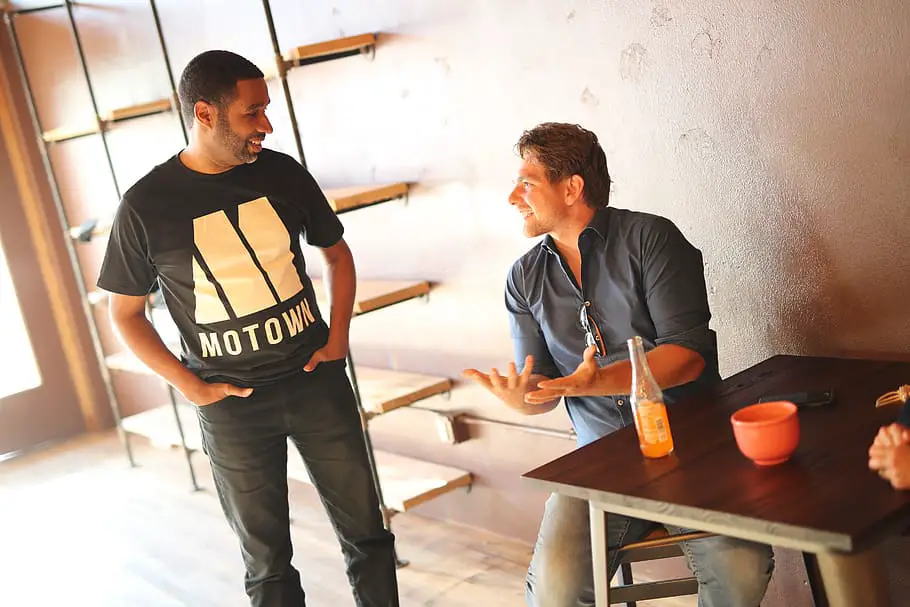In my own life, I stumbled upon a sneaky question with just four words: “Are you sure about that?” Seems harmless, right? But this tiny question turned out to be a big problem. It kept popping up in my conversations, causing confusion and messing with my relationships.
I realized it was like a secret troublemaker, making it hard for me to connect with others. So, I decided to dig deep and figure out why. And now, I want to share what I found with you.
Together, we’ll learn why this small question is such a big deal. We’ll see how it messes up our talks and stops us from really understanding each other. But don’t worry, we won’t just talk about the problem. We’ll find simple ways to fix it.
Join me on this journey. Let’s kick this sneaky question out of our conversations and make talking to each other easy and clear. Together, we can make our relationships stronger and our talks better.
Understanding the impact of communication on relationships
Communication is the foundation of any healthy relationship, whether personal or professional. It is through effective communication that we express our thoughts, emotions, and intentions. However, the way we ask questions can significantly impact the quality of our communication.
When we ask questions, we are seeking information, clarification, or validation. The way we frame our questions can either foster open and meaningful dialogue or create tension and misunderstanding.
Effective communication requires active listening, empathy, and a genuine desire to understand others. When we ask questions that are judgmental, accusatory, or dismissive, we create barriers that hinder the flow of communication and damage relationships.
The hidden danger of the toxic 4-word question
The toxic 4-word question that often goes unnoticed is “Why can’t you just…?” This seemingly innocent question can have far-reaching consequences. It implies that the other person is somehow at fault or deficient, putting them on the defensive.
By using this question, we inadvertently place blame and create a confrontational atmosphere. Instead of fostering understanding and collaboration, it leads to defensiveness, resentment, and a breakdown in communication.
The hidden danger lies in the fact that this question undermines trust and creates a power dynamic where one person assumes superiority over the other. It shuts down dialogue and prevents both parties from truly listening and understanding each other’s perspectives.
Examples of the toxic 4-word question and their effects
Let’s explore some examples of the toxic 4-word question and the effects they have on communication:
1. “Why can’t you just be on time?” – This question implies that the person is intentionally being late, disregarding any underlying reasons for their tardiness. It fails to consider external factors that may be contributing to their delay, such as traffic or unforeseen circumstances.
The effect: The person being questioned may feel attacked and defensive, resulting in strained relationships and a lack of trust.
2. “Why can’t you just get over it?” – This question dismisses the validity of someone’s emotions or struggles. It fails to acknowledge the complexity of their experiences and implies that they should be able to move on easily.
The effect: The person being questioned may feel invalidated and unheard, leading to further emotional distress and a breakdown in communication.
3. “Why can’t you just do it my way?” – This question disregards the value of different perspectives and approaches. It promotes a one-sided approach and undermines collaboration and compromise.
The effect: The person being questioned may feel disempowered and unappreciated, resulting in decreased motivation and a lack of engagement.
How the toxic 4-word question affects personal and professional relationships
The toxic 4-word question can have detrimental effects on both personal and professional relationships. In personal relationships, it can erode trust, intimacy, and emotional connection. In professional settings, it can hinder teamwork, collaboration, and productivity.
When we use this question, we send a message that we are not interested in understanding the other person’s point of view or finding common ground. This not only damages the relationship but also limits our own growth and learning opportunities.

Strategies to avoid using the toxic 4-word question in communication
Now that we understand the impact of the toxic 4-word question, let’s explore some strategies to avoid using it in our communication:
1. Practice empathy: Put yourself in the other person’s shoes and try to understand their perspective without judgment or blame.
2. Use open-ended questions: Instead of asking closed-ended questions that imply a specific answer, ask open-ended questions that encourage dialogue and exploration.
3. Focus on solutions, not blame: Instead of asking why someone can’t do something, shift the focus to finding solutions together. This promotes collaboration and fosters a more positive and constructive environment.
4. Choose your words carefully: Pay attention to the language you use and how it might be perceived by the other person. Avoid accusatory or judgmental language and opt for neutral and respectful phrasing.
5. Practice active listening: Truly listen to the other person’s response without interrupting or formulating your own response. This shows respect and validates their perspective.
Effective alternatives to the toxic 4-word question
Instead of using the toxic 4-word question, consider using these alternatives to foster healthier communication:
1. “Can you help me understand your perspective?” – This question demonstrates a genuine desire to understand the other person’s point of view and opens up the conversation for meaningful dialogue.
2. “What are your thoughts on this matter?” – This question invites the other person to share their opinions and ideas, promoting collaboration and mutual respect.
3. “How can we work together to find a solution?” – This question shifts the focus from blame to problem-solving, encouraging teamwork and cooperation.
By incorporating these alternatives into our communication, we create an environment that encourages open and authentic dialogue, fostering stronger connections and healthier relationships.
The importance of active listening in communication
One crucial aspect of effective communication is active listening. Active listening involves not only hearing the words being said but also understanding the underlying emotions, concerns, and perspectives.
When we practice active listening, we show respect, empathy, and genuine interest in the other person’s experience. This fosters trust, strengthens relationships, and paves the way for more meaningful and productive conversations.

Active listening involves giving our full attention to the speaker, maintaining eye contact, nodding, and providing verbal and non-verbal cues that indicate we are engaged in the conversation. It also includes asking clarifying questions to ensure we fully understand the speaker’s message.
Rebuilding relationships affected by the toxic 4-word question
If you have recognized that you have used the toxic 4-word question in your communication and it has had a negative impact on your relationships, it is not too late to make amends.
Acknowledge the impact of your words, apologize sincerely, and commit to changing your communication habits. Show a genuine desire to understand the other person’s perspective and work together to rebuild trust and connection.
Remember, rebuilding relationships takes time and effort. Be patient, consistent, and open to learning from your mistakes. Through honest communication and a willingness to grow, you can mend the damage caused by the toxic 4-word question.
Conclusion: Creating healthier communication habits
Communication is a powerful tool that can either build or break relationships. By understanding the impact of the toxic 4-word question, we can take steps to eliminate it from our communication toolbox.
Through empathy, active listening, and a commitment to fostering open and meaningful dialogue, we can create healthier communication habits. By doing so, we not only enhance our relationships but also promote personal growth and create a more harmonious and connected world.
Let’s choose our words carefully, ask questions with curiosity and compassion, and strive to understand and respect one another. Together, we can transform our communication and build stronger, more fulfilling relationships.


